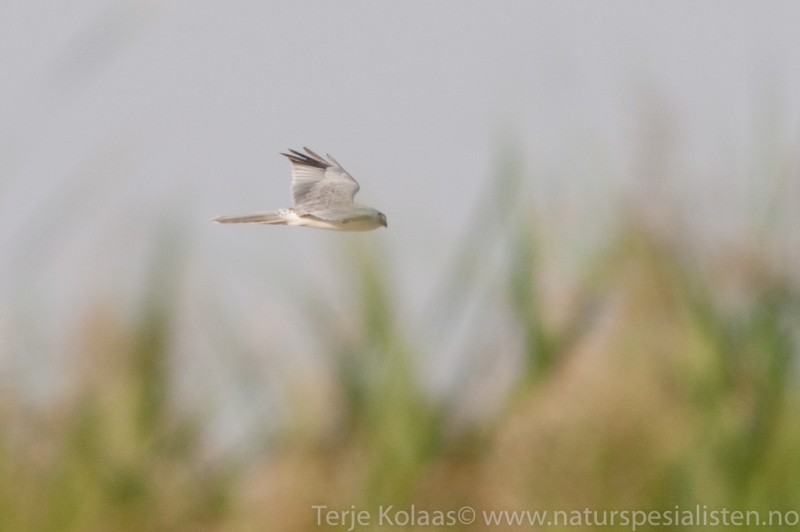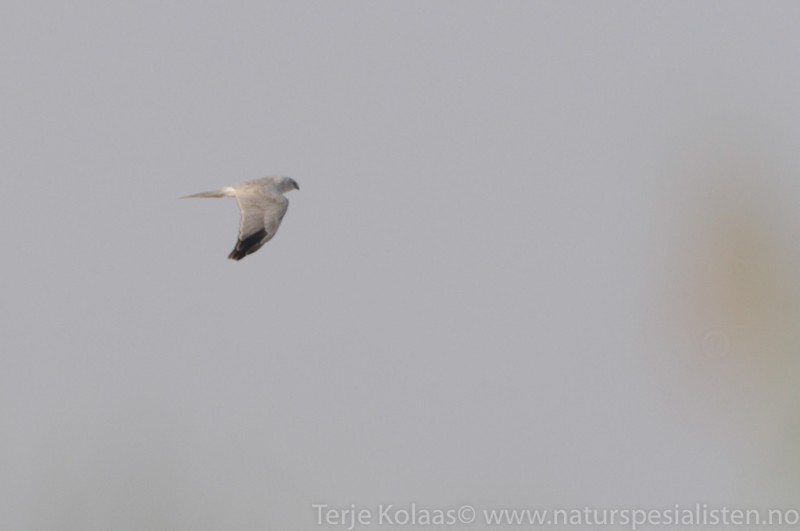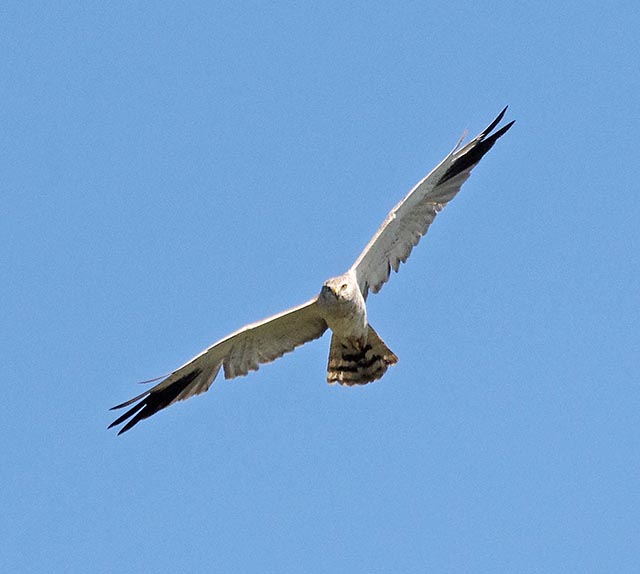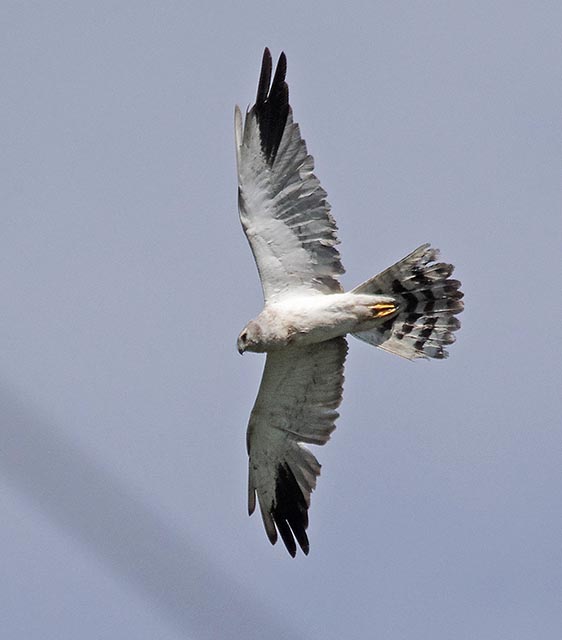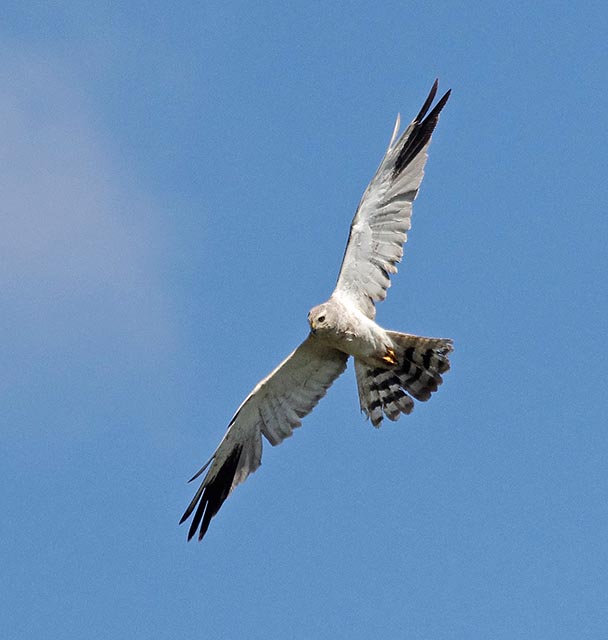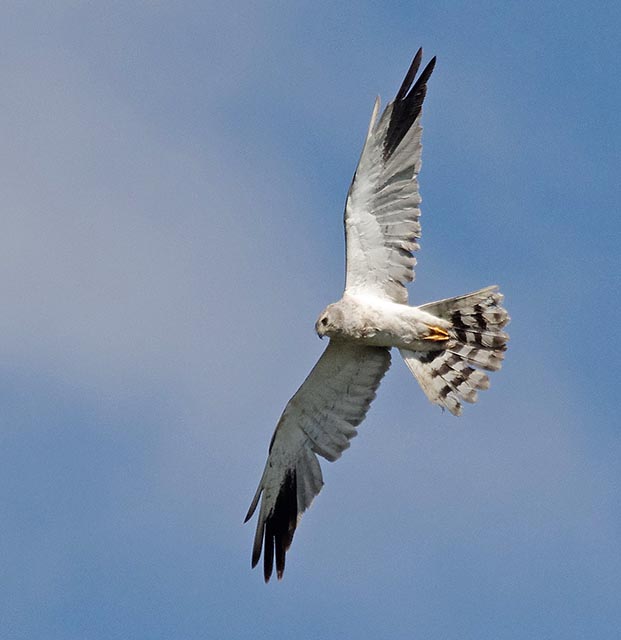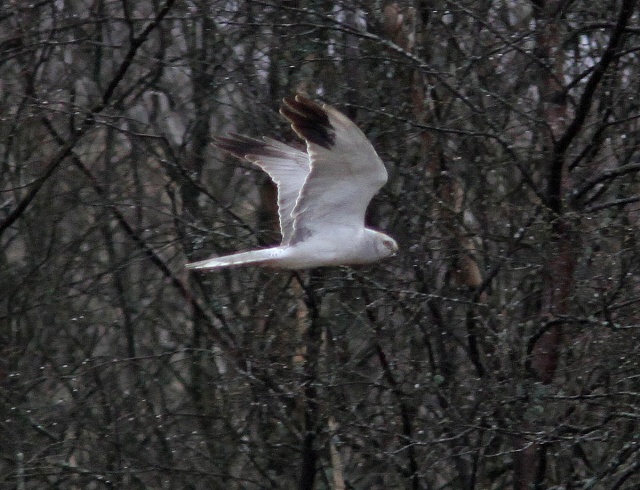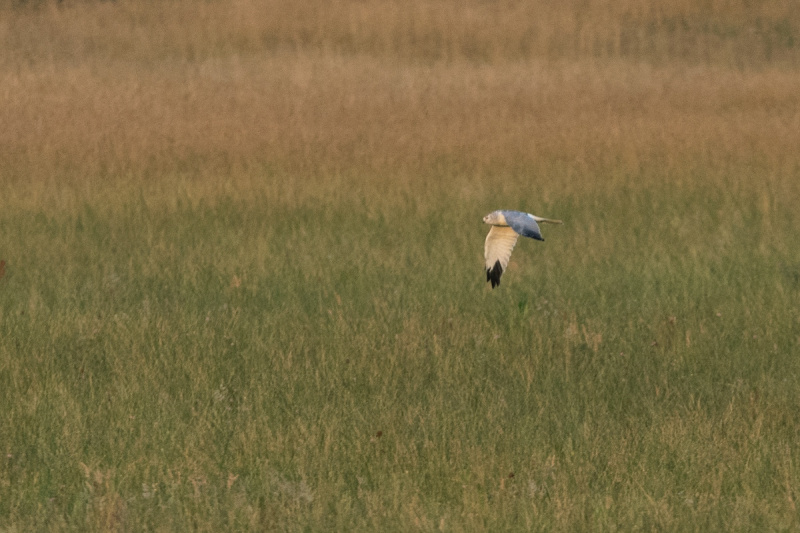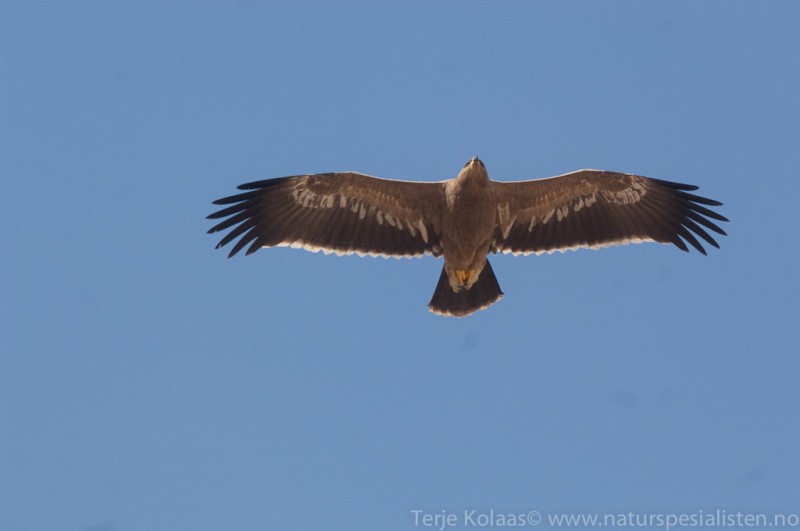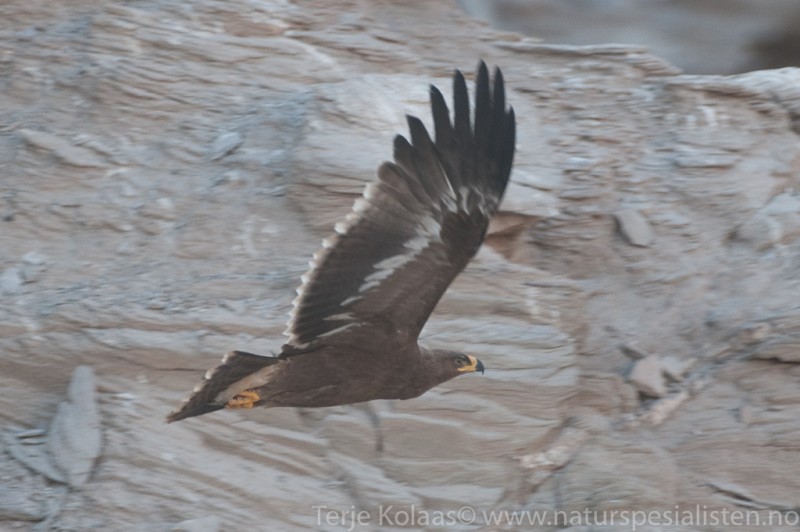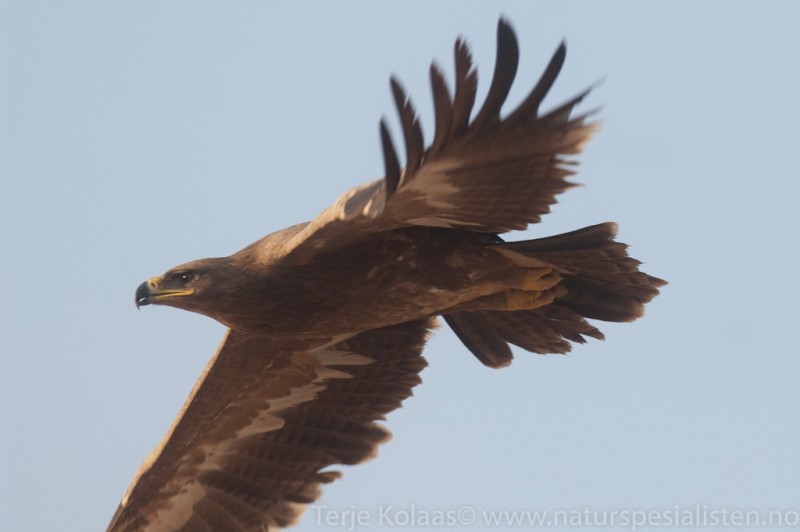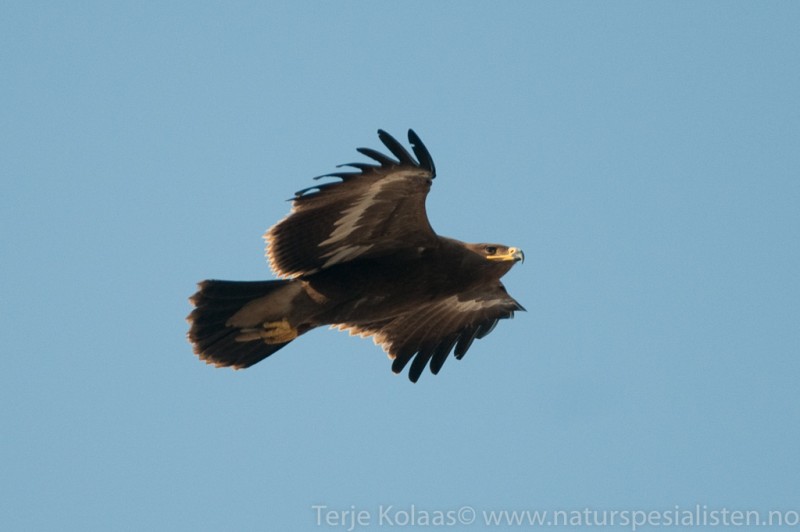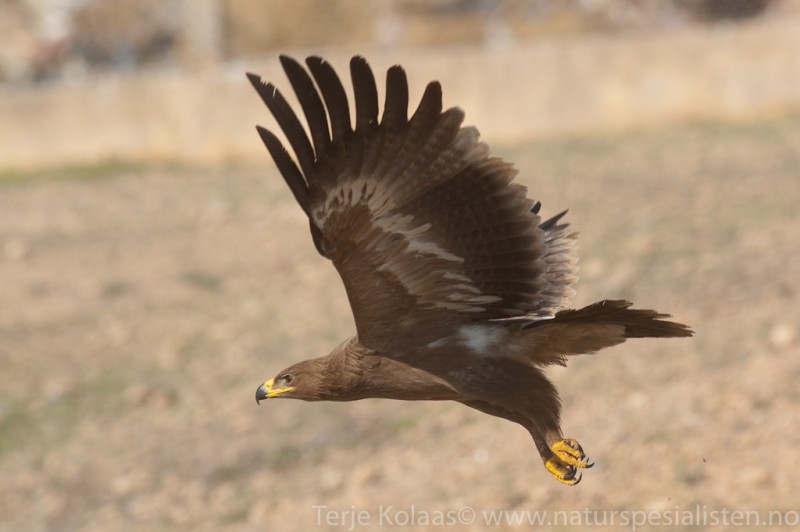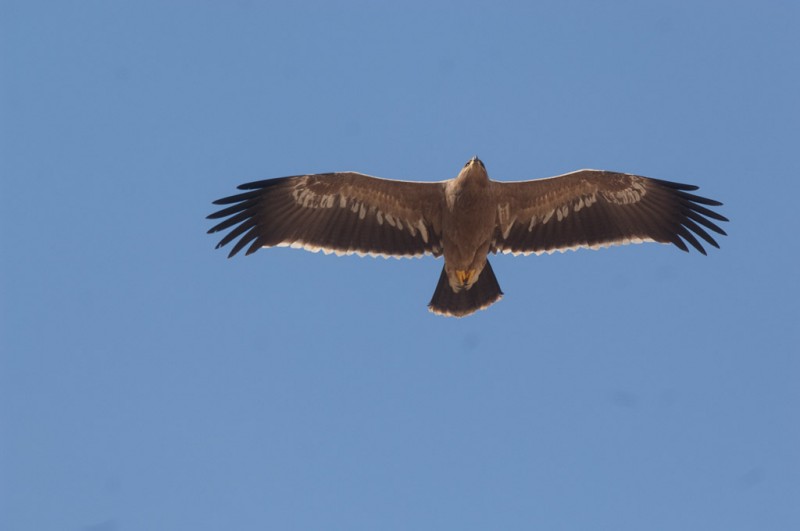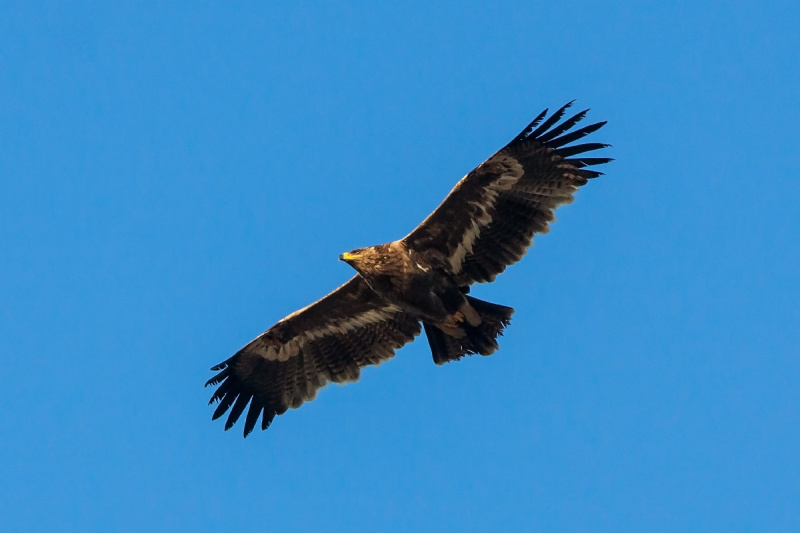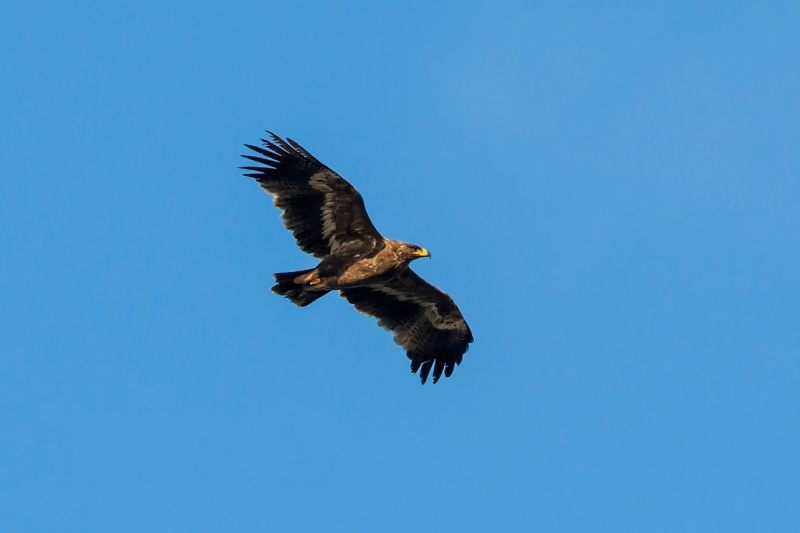Pallid Harrier (Circus macrourus)
Steppe Eagle (Aquila nipalensis)
Slender and elegant harrier, with narrow wings and four "fingers". Adult male easily recognized by very pale grey and white plumage, with diagnostic wedge-shaped, black wing-tips (outermost primary grey). Female and immature birds often difficult to tell from Montagu's Harrier and Hen Harrier. Adult female differs from Montagu's by lack of dark band on upper wing, and by diffuse, sooty inner underwing. Pale bands do not reach wingpit, and under coverts are darker. Differs from female Hen Harrier by noticeably slimmer wings (both hand and arm) and only 4 fingers (but beware moulting Hen Harriers). Immature similar to Montagu's with unstreaked, rufous underparts. Differs in pale tips of inner primaries, and dark half-collar and pale "boa".
Sound:Some calls similar to Montagu's and Hen Harrier, but display call quite diagnostic. A thin, vibrating trill "peerrrrrrrr".
Display call:
Distribution:
Wikipedia: map (se also Xeno-canto below)
Ecology:Birdlife ecology
Links:
Observation.org Latest observations
Image search Flickr NB! May give other species
CCThis species is UNPUBLISHED. Description is not yet completed. You can help give priority to this or other species by voting here.
Sound:Distribution:
Xeno-canto: map
Ecology:Birdlife ecology
Links:
Observation.org Latest observations
Image search Flickr NB! May give other species
CC
 English
English Albanian
Albanian
 Armenian
Armenian
 Bulgarian
Bulgarian
 Catalan
Catalan
 Croatian
Croatian
 Czech
Czech
 Danish
Danish
 Dutch
Dutch
 Finnish
Finnish
 French
French
 Georgian
Georgian
 German
German
 Greek
Greek
 Hungarian
Hungarian
 Italian
Italian
 Latvian
Latvian
 Lithuanian
Lithuanian
 Macedonian
Macedonian
 Norwegian
Norwegian
 Polish
Polish
 Portuguese
Portuguese
 Romanian
Romanian
 Russian
Russian
 Sami : Lule sami
Sami : Lule sami
 Sami : North sami
Sami : North sami
 Sami : South sami
Sami : South sami
 Scientific names
Scientific names
 Serbian
Serbian
 Spanish
Spanish
 Swedish
Swedish
 Ukrainian
Ukrainian

